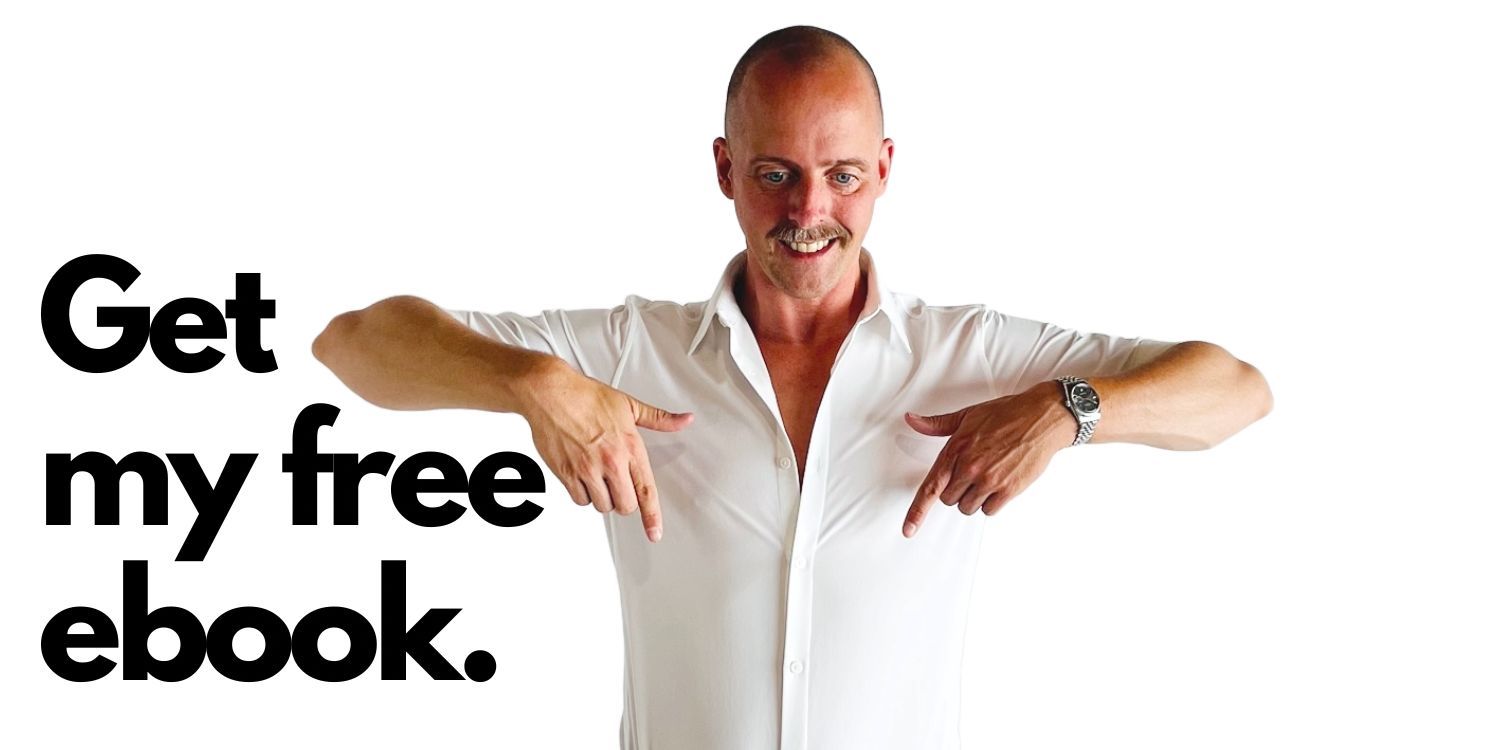Finding Comfort in Anonymity
Jun 18
/
Michael Federic Donatich
Self awareness is something many of us strive for, but it can also be a plateau we get stuck on. For many gay men I know, issues with intimacy are a predictable pattern - a pattern they are aware hurts their romantic relationships time and time again - yet it is a cycle they avoid actively analyzing and attempting to break.
One of the most common of these self-aware cycles is the tendency we have to feeling more comfortable the less we are known. We hunt for intimacy through the jungles of anonymous hookups and faceless internet correspondences, but once we actually find a sexual partner who sticks around long enough to really know us, in time we begin to crave the anonymous interactions once again.
Many gay men see themselves, and each other, as ticking time-bombs of emotional issues waiting to explode. At the same time, we are craving connection. So we meet up, have sex, and then ghost. In this way, we can get away before either bomb explodes. In this way, we don’t even have to clarify to ourselves who the bomb actually is (spoiler, it’s all of us). From a safe distance, we can appear as whatever version of ourselves we wish we were 24/7.
This is not new, nor exclusive to gay men. For years, the topic of ‘why straight men cheat’ in marriages often points to the way an affair makes the man feel younger/sexier/more in control - the fantasy version of himself, the one that is reflected in his mistress’ eyes. The difference, however, is that we are not the straight man having an affair in middle age, trying to recapture how he once thought of himself, in his youth. What the average gay man is looking for in anonymous intimacy isn’t to return to a past state, but to temporarily be a clean slate where he has no past, or where he does not exist at all.

Our sexualities formed in a vacuum, a secret safe haven in our brains, that we had to hide from the world. If we were lucky enough to be raised in an environment where we could be out of the closet, more often than not, it came with a demand for perfection, to compensate for the fact that you had already given your family enough to deal with. We couldn’t be gay and sometimes difficult. We couldn’t be gay and have emotional troubles. As a result of growing up without having your whole person loved and accepted, it is very easy to have grown into adulthood compartmentalizing your internal safe haven from the rest of you. You don’t want the parts of you that hurt to enter your haven.
And so, many gay boys grow into men that are eager to release the version of them they kept hidden for so many years; the ideal future-self they always dreamed of being: confident, sexual, witty, ever-happy, living life to the fullest! As gay men, we are masters of presenting ourselves this way, and in turn believing this is who we truly are…in direct correlation to how easy it is for a stranger to believe our story. The less they knew about us before this moment, the better.
I truly believe this is the root cause of two common issues I’ve seen in gay male clients: “I find it easy to talk with strangers, but difficult to share my feelings and emotions with people close to me” and, “My partner and I lost the sexual dynamic that brought us together after the first year.” Both of these dilemmas come from us preferring what is reflected back from someone who only knows us as we choose to be presented. We grew up finding solace in strangers on the internet, or sneaking out to bars using fake IDs. We most confidently shared our sexuality with those the furthest from our social circles. Distance and scarcity resulted in a strange comfort where intimacy was a controlled escape from life, but therefore was not part of it.
So then when, in time, we finally find a partner who is around long enough to see the parts of ourselves that we can’t control - the trauma, the issues, the insecurities - it is as though a vail has been lifted, to expose us as we truly are. This feels like a blessing in many facets of life, finally being loved just as you are… but now intimacy is no longer the controlled escape it once was. The feelings and fantasies you share are now with someone who’s actually in your life; who actually knows you at your best and worst.
For many gay men, the sexual self that formed in a vacuum does not know how to exist outside. The emotions that felt safe to share with someone you could ghost at any time, feel like they threaten the stability you have with someone you don’t want to lose. Inversely, we fear being close to other gay man (in relationships or friendships) in trepidation that their complicated selves will be too much to handle. Because many of us were never shown that the less convenient parts of ourselves were lovable - and many of us were even taught to hate those parts.
Like many of the ‘problems’ gay men share, I think it underlies the potential for a unique strength. It’s why we are actively trying to create more spaces for gay men to meet and share their struggles with intimacy. This is not an acute ailment that lends itself to a specified support group; what all gay men have in common are baseline coping mechanisms that impact our daily lives. Being able to observe and learn from them can mean the difference between interpersonal growth, and self-perpetuated cycles that push others away.
Does the desire for anonymous intimacy resonate with you?
Ask yourself:
- What parts of yourself do you more easily share anonymously?
- What parts of yourself do you most value being hidden (or omitted) when connecting with someone on a surface-level only?
- Have you had repeated issues with sex ‘fizzling out’ once you get to know someone better? Do you notice a pattern to “the moment it happens?” For example, after they’ve had to take care of you while sick, or after you’ve helped them through financial troubles?
- What are the biggest differences between the ‘you’ acquaintances know, and the ‘you’ partners know? Do you judge one ‘you’ more harshly than the other?
- What are the biggest differences between you and your ‘sexual self’? Are you likely to be more critical of one than the other?
- What is your biggest fear in having someone know you completely? What are you most afraid of finding in someone else, when getting closer to them?
You read an article by Gay Men Coaching
How I can support you:
- Self Love Course - Learn step by step how to build a positive self image.
- Men's Group - Find out how other gay men deal with issues such as intimacy and sexuality.
- Coming-out program - If you could use some support before, during or after your coming-out.
- Individual coaching - If you want to improve the relationship with yourself or others.
And more about me and my approach:
Follow me on:

Get in touch
-
Geestbrugkade 32, 2281 CX Rijswijk, Netherlands
-
contact@reneluisman.nl
-
Chamber of Commerce number: 59693908
-
IBAN: NL49 KNAB 0259 9752 22
Join Our Newsletter
Get monthly updates on news, articles, tips and more.
Thank you!
Gay Men Coaching © 2014 - 2025

with 5 powerful tools to feel confident
As a bonus you will receive a monthly e-mail with tips & inspiration. You can easily unsubscribe at the bottom of every newsletter.
